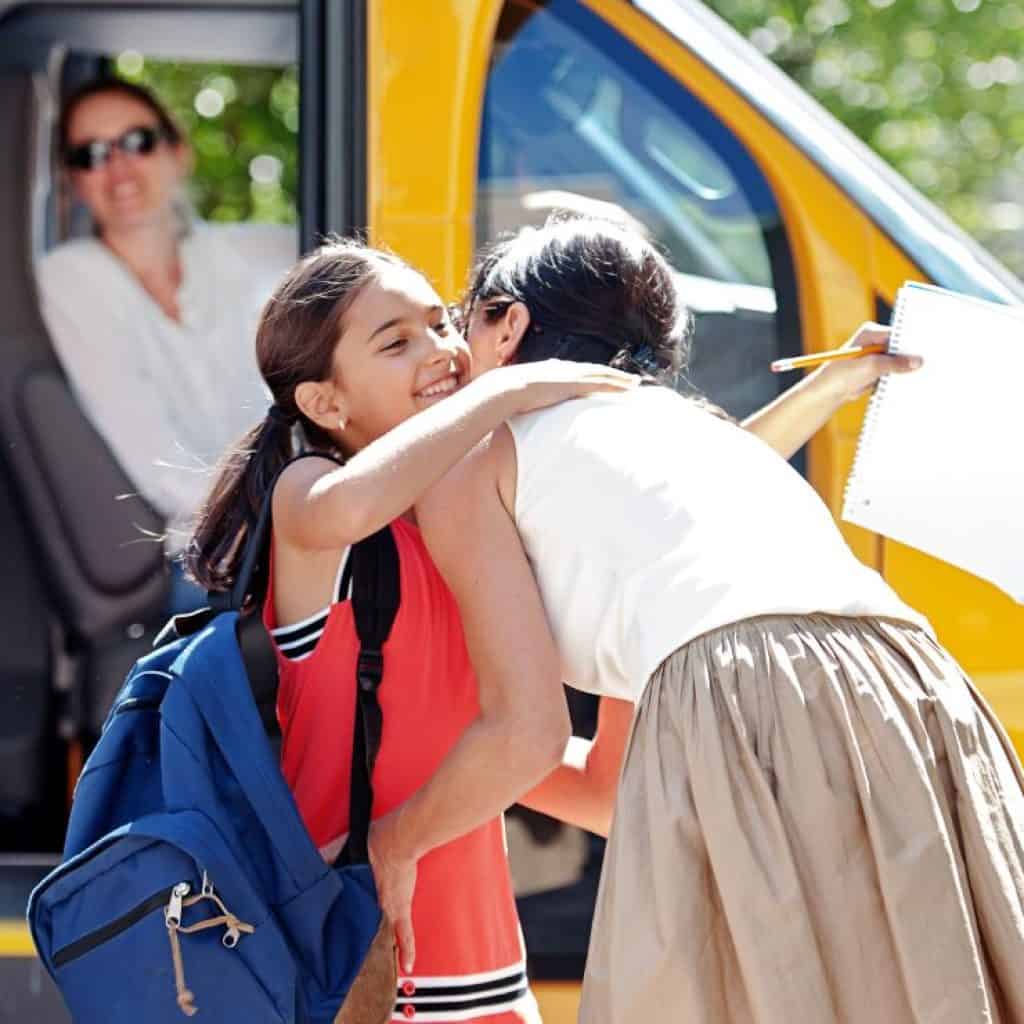| By Cindy Dawkins, OTR/L Reviewed by Unyte Editorial Team |
Practices to Support Anticipatory Anxiety
- Learn about the teacher and try to meet them before school starts.
- Write a letter to the teacher about yourself.
- Shop for school supplies together and let the student pack them in the backpack.
- Practice writing about summer adventures and review photos that help recall the fun of the summer.
- Review classroom rules and schedule.
- Visit the school and let them see where the bathrooms, cafeteria, playground, gym and lockers are, and draw a map of the school to familiarize them with the environment.
- Practice school drop-offs; repetition may be beneficial.
- Connect with classroom and school friends in person at the park, on the phone, or over FaceTime and Zoom weeks before school starts.
- Give them permission to ask as many questions as they need and help find answers instead of dismissing their concerns.
- Listen intentionally. Often, children communicate best during quiet time before bed or riding in the car together, when face-to-face interaction is not required.
- Manage your stress by taking care of yourself as a parent, too.
- Increase going to bed by 10 to 15 minutes each night until you have returned to the school schedule.
- Encourage walking if they have been sedentary during the summer; two 30-minute daily walks can help.
- Connect with the school guidance counsellor for support if anxiety persists.
- Teach deep breathing: breathe in for a count of four, hold for four, and exhale for four.
- Rehearse previous successes and develop words of affirmation that they can repeat and read on the bathroom mirror every day. Tools such as the “Big Life Journal” and the “HappyMe Journal” can help children (preschoolers to teens) develop positive self-talk and recognize damaging, negative self-talk.
- Problem-solve together with excessive reassurance-seeking and asking questions over and over. Reward brave responses.
- Roleplay interactions that might occur with teachers, bus drivers and friends. Allow the child to pretend to be the demanding teacher or the bully. You can use dolls, stuffed animals or puppets to allow the child to communicate.
- Rehearse three positives to look forward to at school.
- Plan breakfast for the first day of school.
How to Set Up Expectations the Night Before
- Read or create social stories with the student.
- Use photos to prompt stories with the student.
- Discuss the morning routines or big expectations.
- Help the student problem-solve for expected challenges like sounds, crowds, bright lights, busy hallways, distractions, changing clothes for PE, bells ringing fire alarms.
- Have the child participate in setting out clothes, pack a backpack and put it by the door or in the car, pack lunch, set an alarm clock.
- Discuss wake up time and lights out time during school days.
Planning for After-School Down Regulation
- Avoid asking questions immediately until they are ready to talk.
- Stop by a playground on the way home.
- Plan for crunchy snacks that help self-regulation.
- Give as much outdoor time as possible.
- Reduce expectations for the first 30 minutes after arriving home.
- Provide choices (three is a good number) of fun things to do before and after homework.
Download the full guide for more tips, including practices to support:
- Supporting Anxiety Around Making New Friends
- Supporting Sensory Anxiety
- Tips for Parents and Caregivers




 © 2025 Unyte Health US Inc.
© 2025 Unyte Health US Inc.